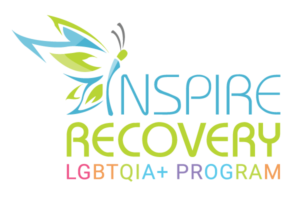Are you or is someone you know struggling with addiction?
Inspire Recovery can help! Call 561-899-6088 for a free & confidential consultation.
Control – Learning to Let Go
The following article was submitted by an Inspire Alumni. It’s full of the kind of self-awareness and solution-focused thinking that comes through a person’s dedication to 12 Step work and living a program of recovery. Wise words from a shining individual. Thanks for sharing your thoughts with us!
Control Learning to Let it GO
By El Cass
Control learning to let go is something I struggle with and what I hear as a common thread among addicts. Most noteworthy, in my opinion, we like to have control and authority over everything that impacts us.
The reality is that we cannot control everything that impacts us. However, we do have the power to take care of ourselves and eliminate the impact.
Easier said than done, right? Well, not really.
Before recovery, I struggled with this tremendously; to the point that if I didn’t get my way, I’d get mad, lose control completely, and abuse. I didn’t even realize I was doing this and consequently remained stuck in this pattern.
When things don’t go my way, or as planned, it’s as simple as reminding myself that “everything is always working out for me”—I can’t control what others do, but I can control what I do. Therefore, if something that someone does negatively impacts how I feel—I choose to let it go.
That’s where I have control—and it feels liberating and empowering.
Eliminate what doesn’t serve me in a positive manner. I know this may sound selfish, but it really isn’t—remember, everything is always working out for you.
Here’s an example: I have an ex-boyfriend that some of my friends and family seem to continue a relationship with and I don’t like it. He hurt me badly and I cannot understand why people that care about me, decide to engage with someone that hurt me. I still do not understand it, but I can’t control what they do. Yes, it hurts my feelings; yes, it feels like they are not loyal—but does it really matter? What matters?
What is in My Control Here? MYSELF
The reality is: I can voice my opinion to them and tell them that it hurts me; I’d be more comfortable if they disconnected 100%. Maybe I don’t understand (nor do I need to) why exactly any engagement is important. But ultimately, I can’t control what they decide to do.
More importantly and more effectively, I can minimize my engagement with them, conversations about him, surround myself with people that share my stance on the topic, stay in places that serve positive vibes, and therefore, do things that make me happy.
I may still feel betrayed by them, but I’m in control of myself—not them. I guess we can agree to disagree on the topic. Furthermore, I take comfort knowing they love me to death—so c’est la vie.
“Live and let live” Goes Both Ways
I can’t control what decisions they make, so I too, will “live and let live.”
I won’t turn to my DOC or depression to minimize the hurt and say “poor me.” Above all, recovery has taught me that drugs, alcohol and depression make it all hurt more and will make me lose control entirely over the situation and my SELF. As a result, everyone and everything wins except me.
When I consciously step into what I do have control over and keep my focus on that, I win—and, in turn, empower myself and my mental health.
By knowing and owning what I can control, I have grown to have much more control over my mind, my emotions, and my choice to be strong during difficult situations. Remember “everything is always working out for you”?—it is!
My advice in recovery: build better relationships, discover new places, and do new things. These lifestyle changes have contributed to feeling content, at peace, serene in my sobriety, and in control learning to let go.
El Cass is an Alumni of the Inspire Recovery program, celebrating over a year in recovery. He’s a go-getter professional in a fast-paced corporate world, based out of NYC and often traveling for work. Living a strong program of recovery helps El Cass keep his family, friends, work and hobbies his top priorities.
Here are some additional questions and answers that you may find helpful in letting go.
How can joining a group like AA or NA and following the 12-steps aid in the process of letting go?
Joining a group like AA or NA can be a beneficial step in the process of letting go. By following the structured approach of the 12 steps within these programs, individuals can find support and guidance in their journey towards overcoming challenges and moving forward. These steps provide a framework that promotes self-reflection, growth, and healing, which can aid in letting go of past burdens and negative patterns. Having a sponsor within the group can offer personalized feedback and encouragement, enhancing the support system available to individuals. It is important to recognize that the process of engaging with the 12 steps is continuous and ongoing, emphasizing that letting go is a gradual journey that requires commitment and effort over time. By immersing oneself in a community that understands their struggles and provides a roadmap for personal development, individuals can find the strength and tools needed to release what is holding them back and embrace positive change.
How can self-compassion help in letting go and facing life’s challenges?
Self-compassion plays a vital role in enabling individuals to let go and confront life’s obstacles. By cultivating self-compassion, individuals can release the burden of trying to fix every situation and instead find relief in acceptance. This shift in mindset frees individuals from unnecessary worry and allows them to approach challenges with renewed courage. Additionally, self-compassion involves replacing self-criticism with self-support, fostering a more positive outlook on life. This positive perspective empowers individuals to let go of unrealistic expectations and take on life’s difficulties with greater resilience and optimism.
What are some suggestions for achieving a level of acceptance and letting go in recovery?
In recovery, it’s important to consider a variety of strategies that can help you achieve a sense of acceptance and learn to let go. Building better relationships, discovering new places, and engaging in new activities can all contribute to feelings of contentment, peace, and control as you navigate your journey towards sobriety. Additionally, it can be beneficial to explore deeper aspects of self-compassion, understanding how showing kindness and support to yourself can aid in the process of letting go. Embracing the present moment and focusing on mindfulness techniques can also be effective tools in releasing unnecessary worries and finding happiness in the here and now. Joining support groups like AA or NA and following structured programs such as the 12-step approach can provide valuable guidance and encouragement in your efforts to let go of past burdens and move forward with a renewed sense of purpose. Remember, as with any skill, the ability to let go improves with practice. Start small, and gradually work towards releasing larger emotional weights, paving the way for a more fulfilling and empowered life in recovery.
How can one develop the ability to let go and accept the present moment?
How does living in the present moment contribute to the ability to let go?
Living in the present moment allows individuals to reduce unnecessary worry and rumination about the past or future, enabling them to focus on what is happening now. This mindfulness practice enhances one’s capacity to let go of concerns that are not immediately relevant, leading to increased ease and happiness.
Why is self-compassion important in the process of letting go?
Self-compassion is crucial in letting go as it involves replacing self-criticism with a supportive inner dialogue, fostering a sense of understanding and kindness towards oneself, which helps in releasing self-blame and developing a more positive outlook on life.
How can the serenity prayer be used as a tool for letting go?
The serenity prayer, with its message of granting serenity to accept what cannot be changed and courage to change what can, serves as a guiding principle for individuals to let go of worries and focus on taking constructive actions in situations under their control.
What is the definition of letting go and accepting the present moment?
Letting go can be defined as learning to accept what is happening in the present moment, where one chooses not to worry about situations that are beyond their control but rather to embrace acceptance of the current circumstances.
If you would like to speak with us about LGBTQ substance use treatment, detox or rehab options please call us today at 561-899-6088 to speak with a representative.








